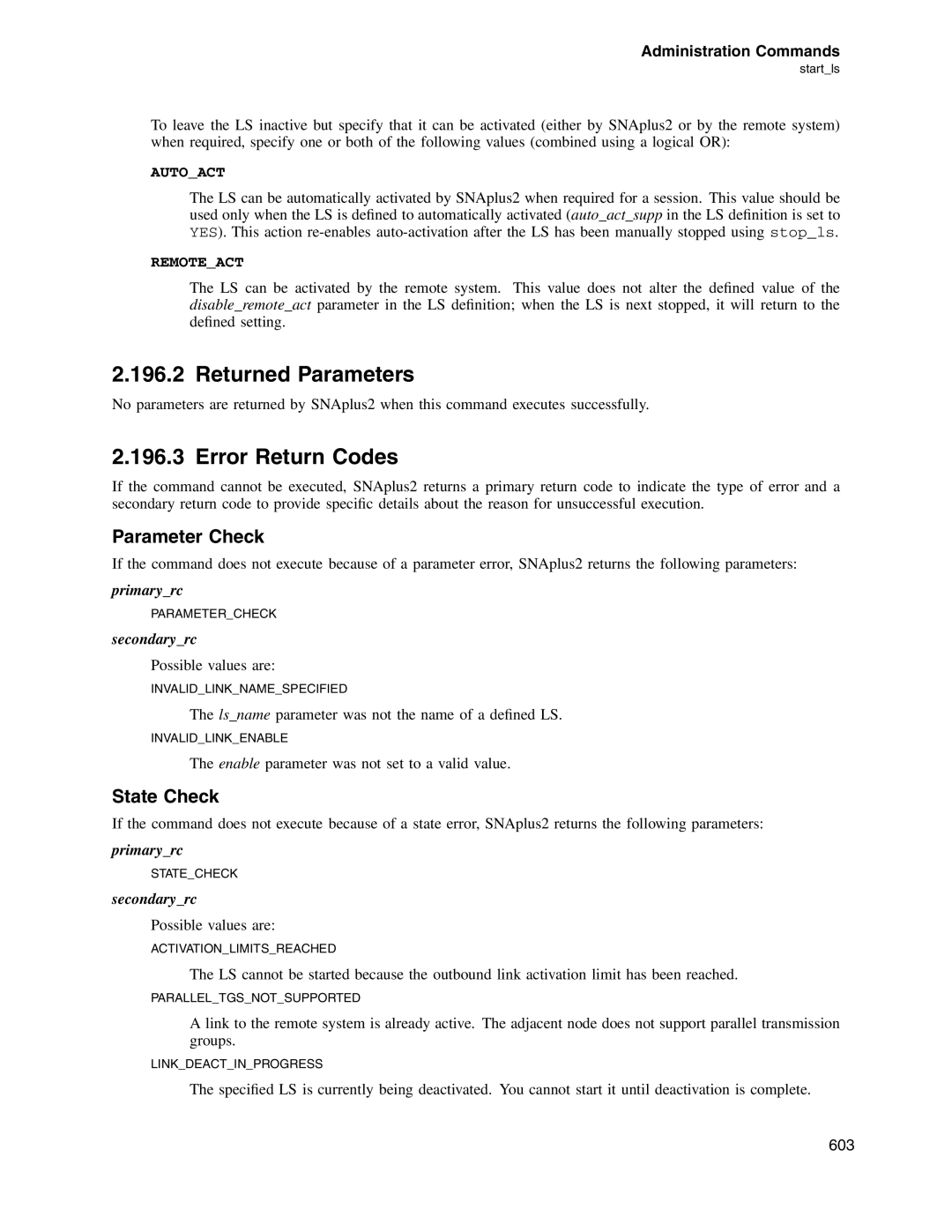Administration Commands
start_ls
To leave the LS inactive but specify that it can be activated (either by SNAplus2 or by the remote system) when required, specify one or both of the following values (combined using a logical OR):
AUTO_ACT
The LS can be automatically activated by SNAplus2 when required for a session. This value should be used only when the LS is defined to automatically activated (auto_act_supp in the LS definition is set to YES). This action
REMOTE_ACT
The LS can be activated by the remote system. This value does not alter the defined value of the disable_remote_act parameter in the LS definition; when the LS is next stopped, it will return to the defined setting.
2.196.2 Returned Parameters
No parameters are returned by SNAplus2 when this command executes successfully.
2.196.3 Error Return Codes
If the command cannot be executed, SNAplus2 returns a primary return code to indicate the type of error and a secondary return code to provide specific details about the reason for unsuccessful execution.
Parameter Check
If the command does not execute because of a parameter error, SNAplus2 returns the following parameters:
primary_rc
PARAMETER_CHECK
secondary_rc
Possible values are:
INVALID_LINK_NAME_SPECIFIED
The ls_name parameter was not the name of a defined LS.
INVALID_LINK_ENABLE
The enable parameter was not set to a valid value.
State Check
If the command does not execute because of a state error, SNAplus2 returns the following parameters:
primary_rc
STATE_CHECK
secondary_rc
Possible values are:
ACTIVATION_LIMITS_REACHED
The LS cannot be started because the outbound link activation limit has been reached.
PARALLEL_TGS_NOT_SUPPORTED
A link to the remote system is already active. The adjacent node does not support parallel transmission groups.
LINK_DEACT_IN_PROGRESS
The specified LS is currently being deactivated. You cannot start it until deactivation is complete.
603
